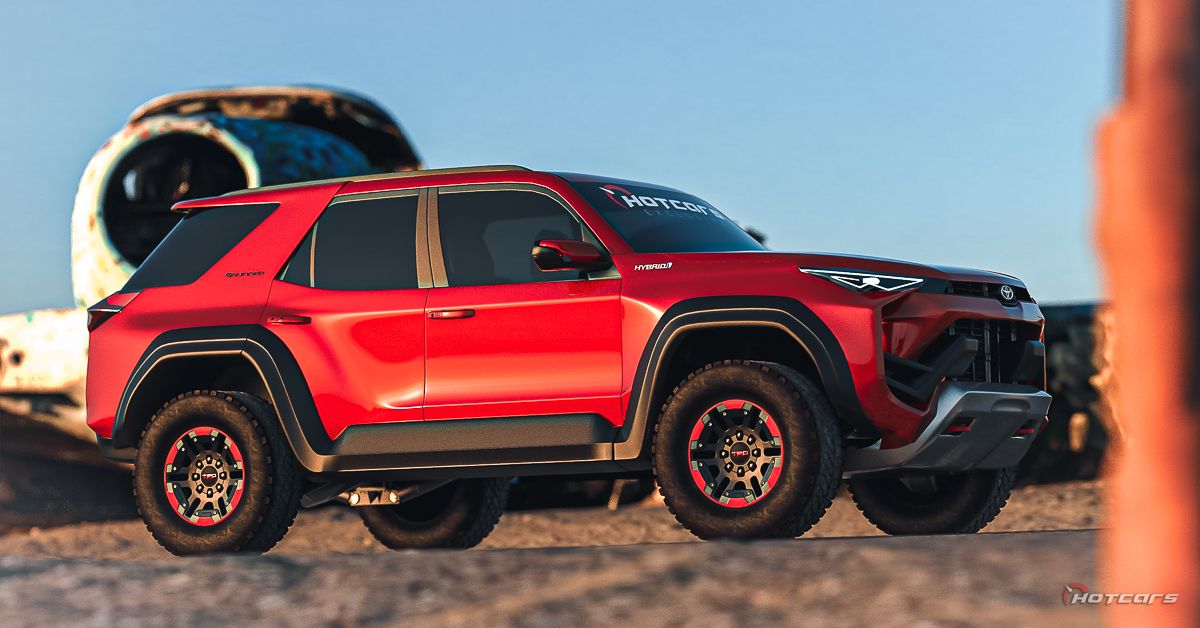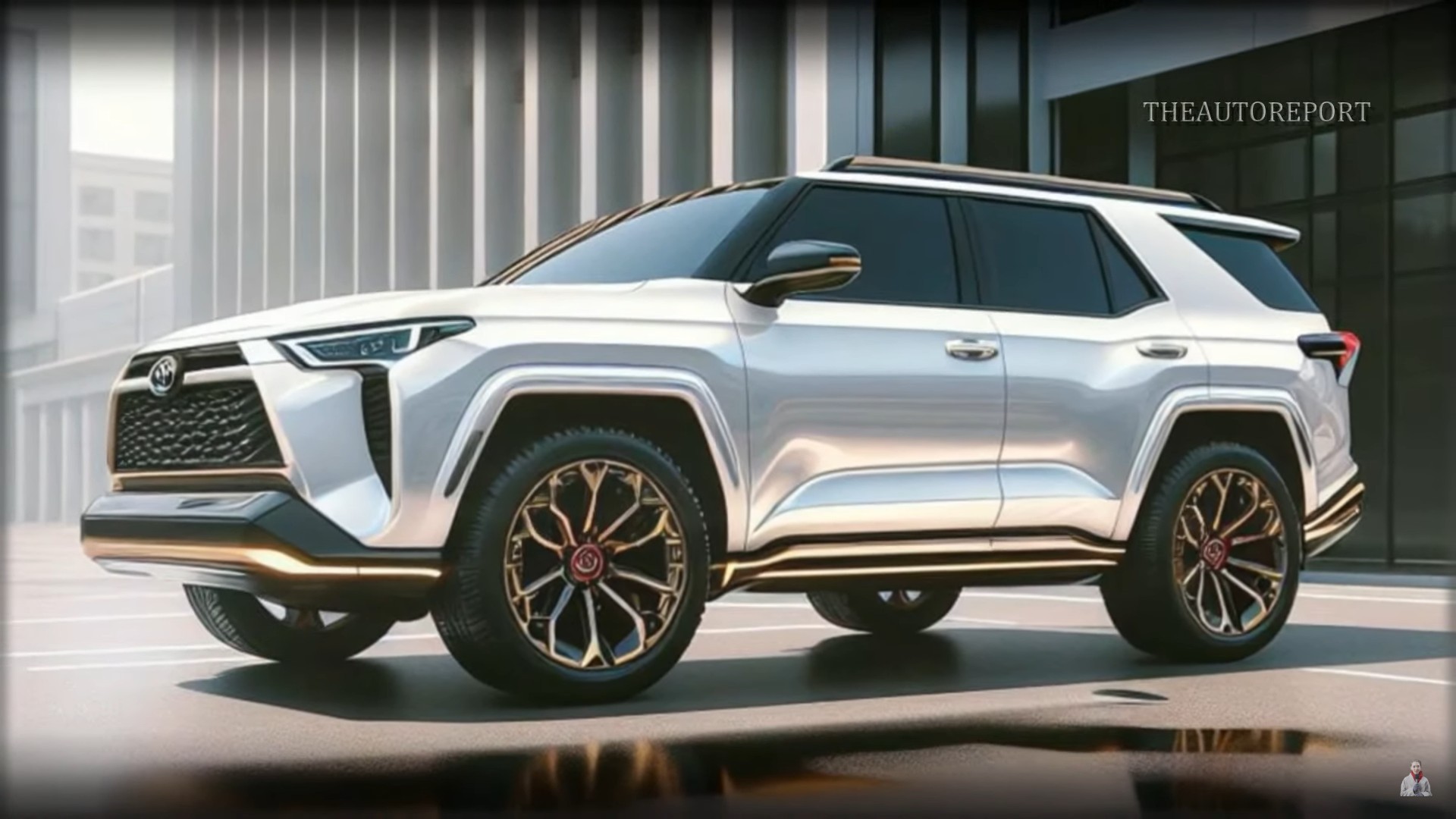The 2025 Toyota 4Runner: Fuel Efficiency in an Off-Road Icon
Related Articles: The 2025 Toyota 4Runner: Fuel Efficiency in an Off-Road Icon
Introduction
With great pleasure, we will explore the intriguing topic related to The 2025 Toyota 4Runner: Fuel Efficiency in an Off-Road Icon. Let’s weave interesting information and offer fresh perspectives to the readers.
Table of Content
The 2025 Toyota 4Runner: Fuel Efficiency in an Off-Road Icon

The Toyota 4Runner, a stalwart in the off-road SUV segment, has long been celebrated for its rugged capabilities and enduring reliability. However, in an era increasingly focused on fuel efficiency, the 4Runner’s fuel economy has been a subject of discussion. As we look towards 2025, the question arises: what fuel efficiency can we expect from the iconic 4Runner?
Predicting Fuel Efficiency: A Complex Equation
Estimating the fuel efficiency of a vehicle like the 2025 4Runner is a complex task. Several factors influence fuel consumption, including:
- Engine and Transmission: The 4Runner’s powertrain plays a significant role. While a hybrid or electric powertrain could significantly improve fuel efficiency, Toyota has not yet confirmed such plans. If the 4Runner retains its current gasoline engine, advancements in engine technology and transmission efficiency could lead to modest improvements.
- Aerodynamics: The 4Runner’s boxy design, while contributing to its off-road prowess, is not aerodynamically efficient. Any design changes aimed at improving aerodynamics, such as a redesigned front grille or smoother body lines, could positively impact fuel economy.
- Weight Reduction: Reducing the 4Runner’s overall weight through the use of lighter materials can improve fuel efficiency. However, this must be balanced with maintaining the vehicle’s structural integrity and off-road capabilities.
- Driving Habits: Fuel efficiency is also heavily influenced by driver behavior. Aggressive acceleration, frequent braking, and excessive idling can significantly increase fuel consumption.
Current Fuel Efficiency: A Benchmark
The current generation 4Runner, available in 2023, offers a combined fuel economy rating of 19 mpg. This figure is relatively low compared to other SUVs in its segment. However, it’s important to note that the 4Runner is designed for off-road use, where fuel efficiency takes a backseat to capability.
Looking Ahead: Potential Improvements
While a dramatic leap in fuel efficiency for the 2025 4Runner is unlikely, some potential improvements can be anticipated:
- Engine Optimization: Toyota might implement advancements in engine technology, such as direct injection or variable valve timing, to improve fuel combustion and reduce fuel consumption.
- Transmission Efficiency: A refined transmission system, perhaps with more gears or a more efficient torque converter, could enhance fuel economy by optimizing gear ratios for optimal fuel consumption.
- Weight Reduction: The use of lighter materials, such as high-strength steel or aluminum, in specific components could potentially reduce the 4Runner’s overall weight, leading to improved fuel efficiency.
The Importance of Fuel Efficiency
Fuel efficiency is becoming increasingly important for several reasons:
- Environmental Impact: Reducing fuel consumption directly contributes to lower greenhouse gas emissions, mitigating the effects of climate change.
- Cost Savings: Improved fuel economy translates to lower fuel costs for owners, potentially saving them money in the long run.
- Government Regulations: Stringent fuel economy regulations are being implemented worldwide, pushing automakers to develop more fuel-efficient vehicles.
FAQs Regarding 2025 Toyota 4Runner Fuel Efficiency
Q: Will the 2025 Toyota 4Runner offer a hybrid or electric powertrain?
A: While Toyota has not yet announced plans for a hybrid or electric 4Runner, the possibility remains. The company is actively developing hybrid and electric technologies, and it is possible that these options will be explored for future 4Runner models.
Q: What are the potential fuel efficiency improvements for the 2025 4Runner?
A: While a significant jump in fuel economy is unlikely, potential improvements could include optimized engine technology, a more efficient transmission system, and weight reduction through the use of lighter materials.
Q: How can drivers improve the fuel efficiency of their 4Runner?
A: Drivers can improve fuel efficiency by adopting fuel-efficient driving habits, such as avoiding aggressive acceleration, maintaining a steady speed, and minimizing idling.
Tips for Improving 2025 Toyota 4Runner Fuel Efficiency
- Drive Smoothly: Avoid sudden acceleration and braking, as these actions consume more fuel.
- Maintain Tire Pressure: Properly inflated tires reduce rolling resistance, improving fuel efficiency.
- Regular Maintenance: Ensure your engine is running optimally through regular maintenance, including oil changes and air filter replacements.
- Reduce Unnecessary Weight: Remove any unnecessary items from the vehicle to reduce overall weight and improve fuel economy.
Conclusion
While the 2025 Toyota 4Runner’s fuel efficiency is yet to be definitively determined, it’s likely to see modest improvements compared to the current model. While the 4Runner’s focus remains on off-road capability, advancements in engine technology, transmission efficiency, and weight reduction could contribute to a more fuel-efficient experience. As the automotive landscape evolves, it’s essential to stay informed about the latest developments and prioritize responsible driving practices to minimize our environmental impact.








Closure
Thus, we hope this article has provided valuable insights into The 2025 Toyota 4Runner: Fuel Efficiency in an Off-Road Icon. We thank you for taking the time to read this article. See you in our next article!
